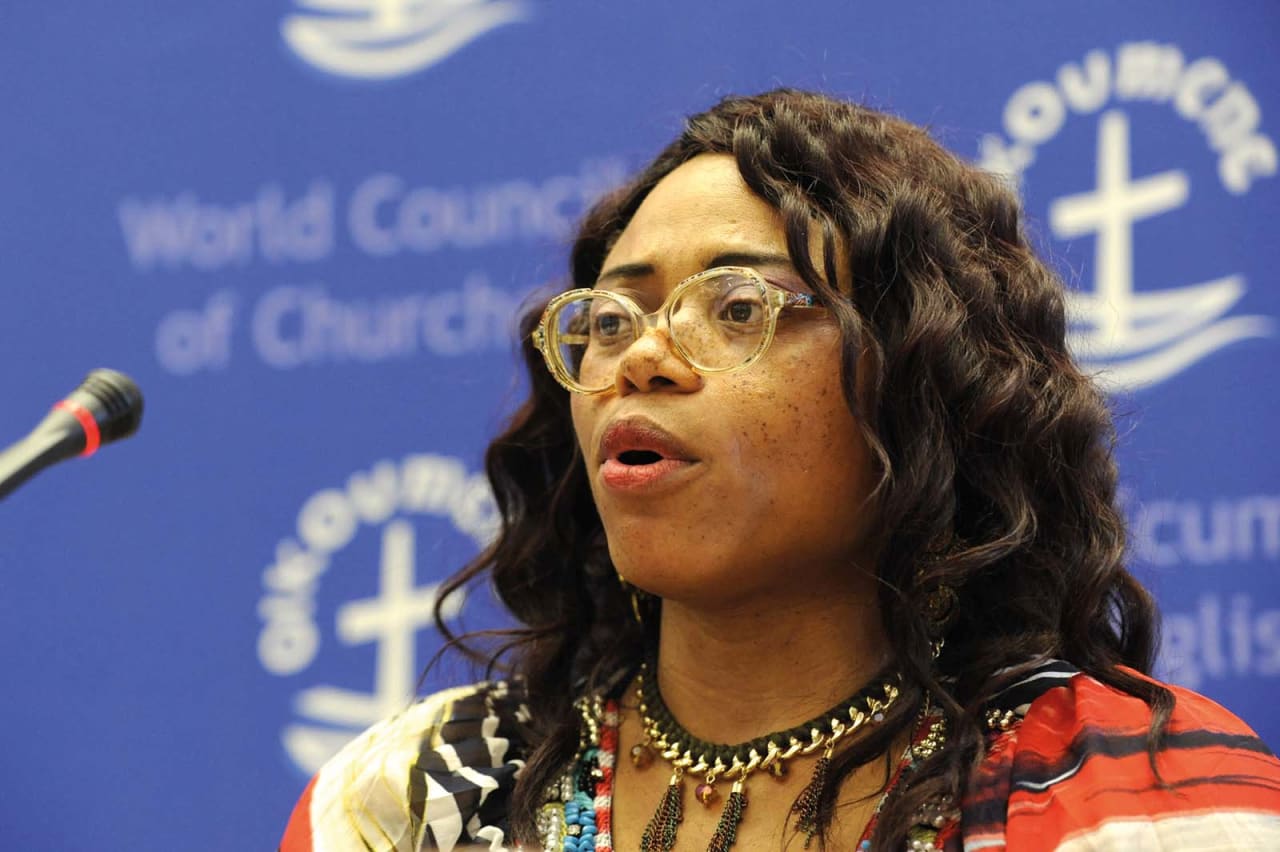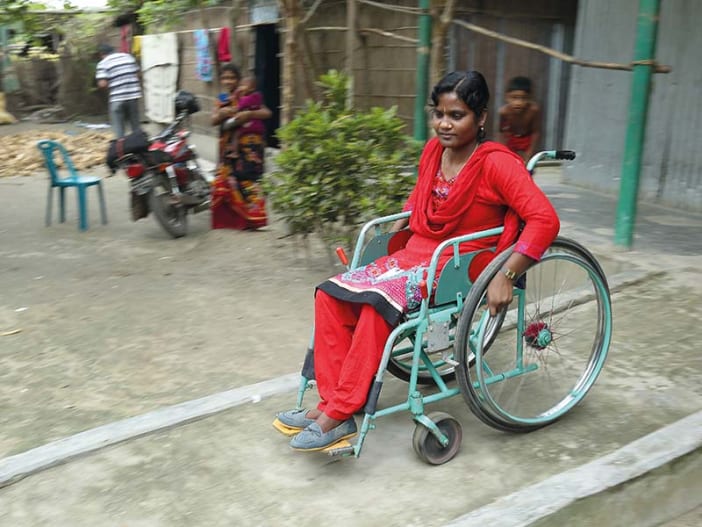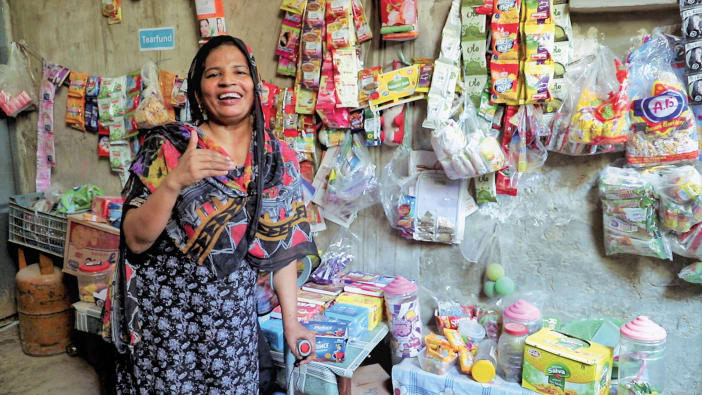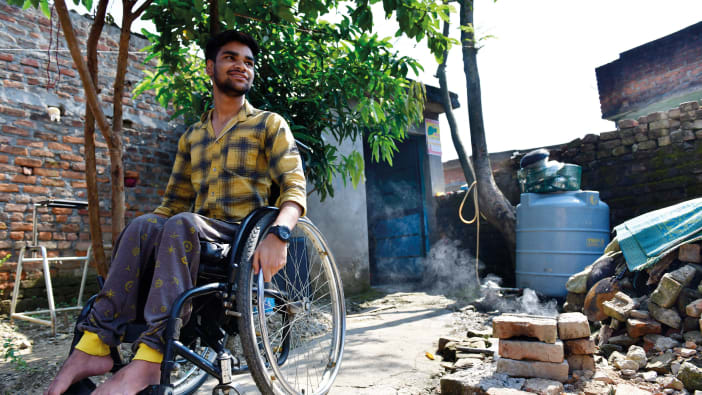Rev Dr Micheline Kamba has devoted her adult life to challenging misconceptions about disability and encouraging churches to be more inclusive. Here she shares some of her personal story.
Please can you tell us a bit about yourself?
I had polio when I was two years old which left my legs paralysed, so I need crutches and callipers to move around. I am married and I have a son who is 17.
What was it like growing up with a disability in the Democratic Republic of Congo (DRC)?
My parents and family were great. They included me in everything and I went to school the same as my sisters and brothers.
But when I became a teenager, I found it difficult. In DRC many people believe that if you have a disability, it is because of a curse. It was difficult for me to protect myself from this thinking. I was also told that I would not be able to get married or have children. At one point I tried to commit suicide.
What changed?
My sister helped to show me that I am God’s creation and am loved by him. In Isaiah 49:15 God asks Israel, ‘Can a mother forget her baby?’ I realised this is impossible. In the same way, God cannot forget me. Understanding this was my liberation.
Since that time I have never asked God to heal me physically, because I know that God’s grace is sufficient for me, and his strength is made perfect in my weakness (2 Corinthians 12:9). I have accepted myself as a woman with a disability and I know that God has good plans for me.
Does the church have a healthy attitude towards people with disabilities?
Many churches welcome people with disabilities but tend to assume that we are poor and want something from them. They hand out clothes and food but sometimes all we want is to worship God alongside everyone else.
In charismatic churches the assumption is often made that if a disabled person comes to a service, they are hoping for a miracle. One day I was visiting a church and they called people forward for prayer. I stayed sitting where I was and one of the men said to me, ‘Do you not want to go up?’ I said ‘No, I am fine, I can pray from here.’ He said, ‘You do not want healing prayer?’ I said, ‘Why are you insisting like this? I am not sick! I have accepted that God loves me as I am.’ He was so surprised: ‘What! You are happy like this?’ I said, ‘Yes, I am happy!’
I know that nothing is impossible for God: if he told me today to leave my crutches and walk, I would not be surprised. But it is difficult when church leaders just see a disability, not a person. It adds to the stigma and people feel bad if they are not cured.
What could be done better?
Churches need to involve people with disabilities. They should look beyond the disability to who they are in Christ.
I met one lady who sings beautifully. Like me, she was on crutches. She said, ‘I know how to sing, but they never use me. Every day they just pray for me – I sing well!’
To help change these attitudes, I created the organisation Iman’enda which means ‘Stand up and walk’. Through Bible study and prayer, we help people with disabilities to accept themselves. Then they can stand tall in their spirits and their minds, knowing they are loved by God.
Micheline Kamba is a church minister and a professor in the Faculty of Theology at the Protestant University of Congo. She helps coordinate the Ecumenical Disability Advocates Network in French-speaking Africa for the World Council of Churches. She is the president and founder of Iman’enda Ministries.
Email: [email protected]









